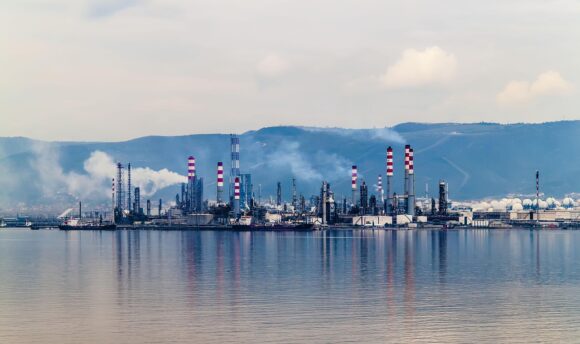In February, Generali announced first measures to reduce its support to the coal sector. Since 2015, 15 insurers have begun excluding coal from their investment portfolios and four of them have also committed to stop underwriting parts of the coal sector. It was thus time for Generali to join a development that the Financial Times considers “logical and welcome”.
But what could have been an opportunity to tackle one of the causes of air pollution and climate change in Europe and beyond has turned into a missed opportunity. What Generali has announced on the investment side appears at first sight as a large-scale divestment from the coal industry, but a major flaw could undermine the credibility of the whole policy. Moreover, Generali will continue to underwrite this dirty industry.
Generali will continue to underwrite coal
European coal plants cause thousands of premature deaths annually, 22,900 in 2013. The Polish coal fleet alone is responsible for a quarter of these deaths.
Without insurance cover, new projects could not be built and existing operations would have to shut down. Exiting the underwriting of coal plants would not only contribute to meeting the EU climate objectives, but would also bring substantial gains for public health. This is particularly true for Generali, one of the insurers which is most involved in underwriting coal projects and coal companies in Poland, with at least eight contracts signed since 2013.
Generali is, for example, part of a consortium providing insurance cover for the construction of two new 900 MW coal units for the Opole coal power plant. This expansion, currently the largest in Europe, is expected to cause 62 premature deaths and 4,135 asthma attacks every year. And providing insurance to this project is obviously contrary to the climate change imperative of closing all European coal-fired power plants by 2030.
But instead of aligning itself with AXA, which last December committed to no longer provide coverage for the construction of new coal mines and power plants, or property and casualty insurance for existing coal infrastructure, Generali wants to maintain a market in which there is still profit to be made. The company stated in its press release that it wants to “continue its policy of minimal exposure” to coal underwriting; in other words, it refuses to make any changes in its underwriting business.
Divestment with loopholes
While it must be stated that Generali is the first big Italian investor to divest from coal, it is impossible to ignore the fact that its policy will not impact its investments in some of the biggest coal plant developers in Europe. Indeed, there is a risk that Polish coal companies could still benefit from Generali’s investment, both through its own account and the assets it manages for third parties.
While Generali adopted criteria recommended by NGOs and backed by the Global Coal Exit List, there are still serious doubts as to the scope of their implementation and thus in regards to the quality of the policy. Although assets managed for third parties account for about 11% of the total 540 billion euros managed by Generali, they are not covered by the strategy announced last week. But what is most worrying is Generali’s statement that it “will allow exceptions only in those countries where the production of electrical and heating energies are still dependent on coal, without alternatives in the medium term”. It seems like Generali is leaving a very big back door open here.
Generali should stand by the principles it has announced and stop supporting companies which are not only highly exposed to coal, but above all, intend to deepen a country’s coal dependency by building new coal power plants and opening new coal mines.
Generali needs to be reminded that Polish companies plan to build more than 10 GW of new coal capacity and to open new open-pit mines holding more than 3.2 billion tonnes of lignite, the dirtiest form of coal. Generali invests in four of these companies, which are collectively planning 8,245 MW of new coal capacity.
According to research conducted by Profundo, Generali has currently invested $114 million in the world’s 120 most aggressive coal plant developers, and holds a full 54% of these investments ($62 million) in these four Polish companies. Excluding them from its recent commitment to no longer invest in “companies actively involved in building new coal plants” would be totally hypocritical.
With such exceptions, it is very clear that the measures announced by Generali do not allow it to “strengthen its leadership position as a responsible business” nor to fulfill its commitments as a signatory of the Paris Pledge for Action.
Without a quick turnaround by the publication of its financial results in March or by its general meeting in April, Generali risks being welcomed with particular attention by international civil society at the next Climate COP which will be held in Poland.



